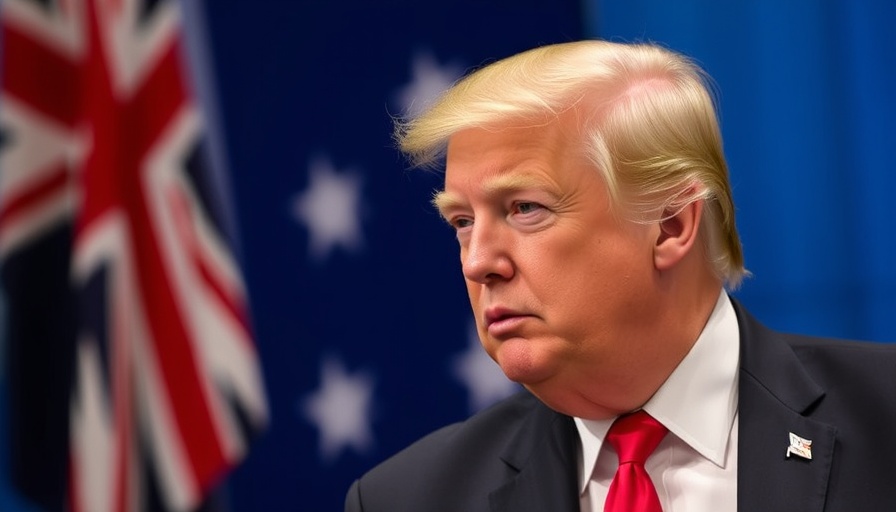
The Ripple Effect of Trump’s Tariffs on Australia
The recent imposition of tariffs by US President Donald Trump has sent shockwaves through global markets, with Australia feeling a significant impact despite being one of America’s closest allies. The tariffs on steel and aluminium imports, intended to protect American industry, may ultimately harm the very economy they seek to bolster, underscoring the interconnectedness of global trade in today’s market.
Understanding the Financial Fallout
In light of the latest tariffs, Australia faces a complicated economic landscape. Not only are Australian exports of aluminium and steel to the US affected, but there is a wider disruption looming for imports of major American products, such as cars and machinery. This is crucial because many of these goods are assembled using components sourced globally. According to economic analysts, including Dr. Scott French from UNSW, the consequences on Australian firms could be substantial, leading to increased operational costs and reduced competitiveness in a global marketplace already fraught with uncertainty.
Global Trade Dynamics: A Complex Interplay
Trump’s tariffs are not just a simple tax; they are a complex web of implications that can ripple through various sectors. It’s estimated that about one-third of Australian superannuation funds are invested in overseas equities, meaning fluctuations in the US market directly influence retirement savings in Australia. With global share markets in turmoil—losing billions in just a few days—the future of Australian investment portfolios hangs in the balance as experts warn of a potential recession.
Protective Policies: The Double-Edged Sword
While it might be tempting for Australia to retaliate with protective tariffs of its own, experts caution against such measures. Dr. French highlights the dangers of adopting a protectionist stance, as it could stifle local industry growth and lead to further economic isolation. Instead, he advocates for targeted, temporary support systems to cushion the immediate impact without sacrificing long-term competitiveness.
Future Trade Opportunities Amidst Challenges
Despite the turmoil, there could be an unexpected silver lining. Economic diversification and trade opportunities with Indo-Pacific partners may emerge as companies look to cushion the shock of US tariffs. This trade diversion could open new doors for Australian exporters as they seek alternative markets and products. History shows that challenges can breed innovation in trade relationships, encouraging Australian manufacturers to adapt to shifting demand.
Real-world Implications for Australian Households
As Australians watch their superannuation balances fluctuate, the rising costs on imported goods inevitably trickle down to household economics. For homeowners and eco-conscious consumers alike, the increased prices for everyday products—including food, machinery, and vehicles—could become a reality in the months ahead. Those nearing retirement may feel particularly vulnerable, as the specter of a declining market looms large.
A Call for Strategic Adaptability
In conclusion, while the immediate effects of Trump’s tariffs cast a long shadow over the Australian economy, strategic adaptability and proactive policymaking can help mitigate potential damage. Policymakers must work to ensure that any measures taken are temporary and targeted, preserving the momentum of competitive advantages that Australia has painstakingly developed.
As we weather this economic storm, the interplay between our economy and global markets reminds us of the importance of remaining vigilant and responsive to these changes. Individuals should consider how these economic shifts may affect their long-term financial health and be prepared to adjust their strategies accordingly.
 Add Row
Add Row  Add
Add 



 Add Row
Add Row  Add
Add 
Write A Comment